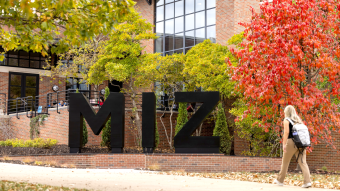November 6, 2020
Transcript
Brian Consiglio: Transitioning from pediatric to adult health care can be stressful for any teenager, but young adults with autism can find it particularly challenging. Previous research has found young adults with autism are half as likely to receive health care transition services, such as learning how to schedule a doctor’s appointment or fill a prescription, compared to other young adults with special health care needs.
To help solve this disparity, MU School of Health Professions associate professor Nancy Cheak-Zamora created a transition readiness assessment specifically for adolescents with autism. The assessment is designed to identify skills adolescents need to transition from pediatric to adult health care and be able to manage their health appropriately.
Cheak-Zamora: “In our previous research, we had seen that a lot of adolescents with autism were not receiving health care transition services and we wanted to create a tool that helped them to think about health care transition as well as help the health care providers provide those services more readily.”
Consiglio: After partnering with five autism clinics across the country to distribute the assessment, Cheak-Zamora found that young adults with autism could benefit from better understanding medication management, insurance policies and health care finances, as well as receiving education on other areas like sexual health and relationship needs. She adds that providing teenagers with opportunities to discuss these topics early on can help them gain confidence and independence as they transition into adulthood.
Cheak-Zamora: “The goal of the health-related independence measure is to make sure health care providers are giving young adults with autism the services they need, and creating a space in which the young adult can take on some challenges and really meet those challenges over time to build confidence and autonomy.”
Consiglio: I’m Brian Consiglio, with a Spotlight on Mizzou.



